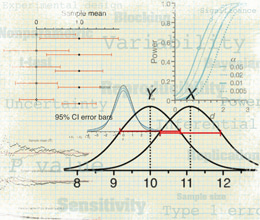The Points of Significance column on statistics is now free access as part of a larger resource on statistics on nature.com

Erin Dewalt
In the meantime, I’m very happy to say that the entire column is now freely available as part of the Statistics for biologists collection, a new free resource on nature.com that collects selected published articles on statistics from across the Nature family of journals. A blog post on Of Schemes and Memes by Veronique Kiermer (Director, Authors and Reviewers services) introduces this resource and discusses its role in NPG’s ongoing efforts to improve reproducibility in science.
Although the primary focus of the articles is on biological applications, researchers from many disciplines will find useful information in this collection. The Points of Significance articles have a dedicated page listing these articles in chronological order with a brief summary of each.
The Statistics for biologists collection will not be a static resource, but will be continuously updated with new content. In particular, each new Points of Significance article will be added as it is published. We have also tried to highlight content of a similar nature that other publishers have made freely available.
I’d like to thank Martin Krzywinski and Naomi Altman for their continued hard work on these columns, and our guest author Paul Blainey. Without their dedication and time the Points of Significance column would never have been this successful. Now it will be easier for even more people to benefit from these wonderful articles.
Please sign in or register for FREE
If you are a registered user on Research Communities by Springer Nature, please sign in